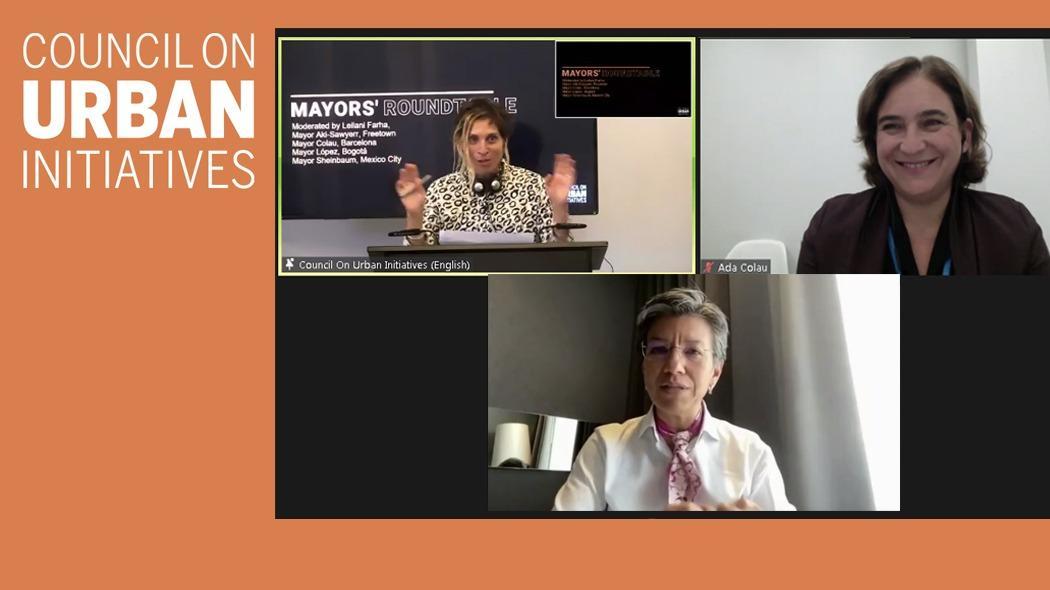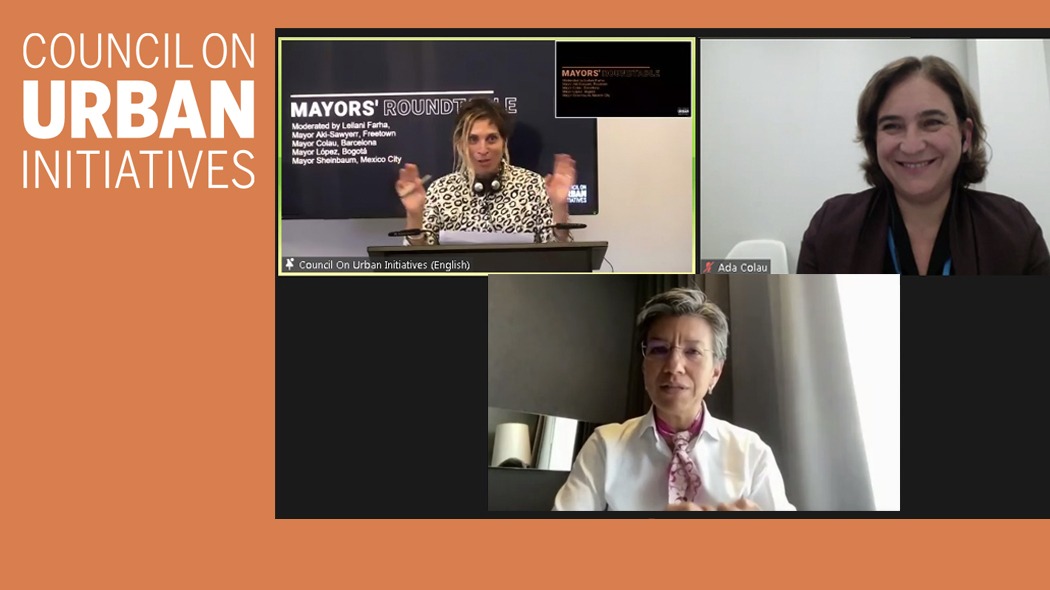Bogotá Mayor Claudia López continues her international agenda from Glasgow as she participated in the launch of the ‘Council of Urban Initiatives,’ an initiative organized by UN Habitat. Alongside LSE Cities and the Institute for Innovation and Public Purpose of University College London (UCL).
The council's inaugural session reinforced the importance of further integration on behalf of more cities into global debates. Primarily, on how to re-orient economies and societies towards stronger social goals.
Mayor López joins a council comprised of eight-teen mayors, activists and academics from around the world. This council was formed by the UN Secretary General, Antonio Guterres in the hopes of using the pandemic as an opportunity to reflect and re-imagine the way we interact and re-build cities.
Mayor López took centre-stage and unveiled what is primed to become her administration’s crowning achievement, a ‘District Care System’ that seeks to positively impact the lives of women and youths that fall under the poverty line. As the first female mayor of Bogotá, Claudia López feels that it is incumbent upon her to improve the quality of life of the very women that she was elected to represent. “I hope this District Care System is our main legacy, the hallmark of the first female mayor in a city like Bogotá, but most importantly, it is part of building an inclusive city, a city that overcomes machismo as a cultural base of our relationships.”
It is worth noting that the main prerogative of the ‘District Care System’ is to unburden women from the chore of the unpaid care-work that comes from being a matriarch of a household. The aim is to re-distribute this burden of care and allow women to take their time back in to their own hands.
In this context, the mayor explained that she is adapting the social services of the city such as the social infrastructure of education, health, care for people with disabilities, the elderly and children, so that they serve to relieve women of the unpaid burden of care.
"Machismo is a cultural construct between men and women," said Mayor Claudia López, "the Care Blocks lend several distinct services: caring for those who care for others, this is done by re-defining masculinity in the hopes of promoting a safer and more equitable society."
The mayor stressed that this district initiative creates political and economic autonomy. “I am sure that the more women participate, the more women have a voice, the better their lives and the lives of all of us will be. A world with more women in democracy is a better world for everyone,”
Mayor Claudia López mentioned that these days she is busy trying to reach an agreement with the City Council to approve a Land Use Plan, the goal of which is to establish the ‘District Care System’ as part of the functional care infrastructure that a city like Bogotá deserves. “With this POT, land is being reserved to build 45 'Care Blocks' so that any family, any woman, any child, any elderly person, can find care, culture and recreation services no more than a thirty-minute walk from their homes.”
Finally, Mayor López assured that the POT proposal would make it impossible to harden the city or destroy the green and rural soil. “It seems to us that it is a mandate of the 21st century and of climate change and that is why we’ve decided not to grow the urban area, instead we’ve decided to grow 30% of the environmental and green zones of our city. In the meantime, we are tending to the land that needs to be re-planted and re-forested. We aspire for Bogotá to one day have the largest urban forest in Latin America.”
This first meeting of the council focused on re-thinking the rhetoric behind governance, politics, design and urban planning around the future of cities in three main themes: fair, green and healthy cities.
The mayor of Barcelona, Ada Colau Ballano, was full of praise for this initiative, “we want to make cities where you can live well, where you can work, where there are equal social, democratic and health opportunities and where the protagonists are the population in its diversity. Not only men who go to work, but where the protagonists under equal conditions are all its inhabitants with their diversity; women, men, boys, girls and the elderly, diverse cultures, diverse forms of accessibility, functional diversity and to achieve these great challenges, we want to do it with a feminist, co-operative, transversal method where we set common goals and work together to achieve these objectives."
The Council is an independent body established in collaboration between UN-Habitat, the UCL Institute for Innovation and Public Purpose (IIPP) and LSE Cities at the London School of Economics and Political Science (LSE). The event is chaired by Professor Economist Mariana Mazzucato (IIPP) and Professor Ricky Burdett (LSE).







